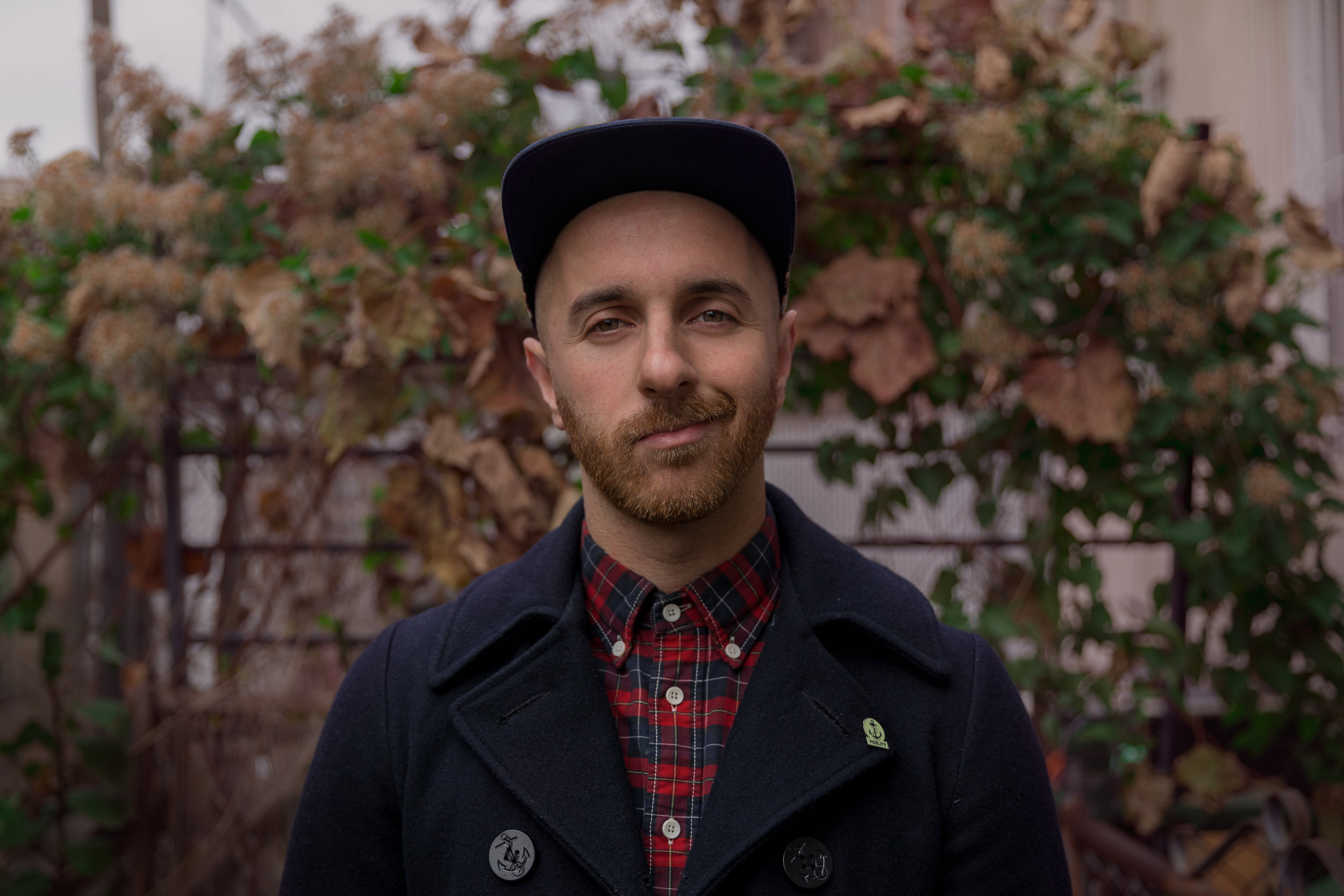Take Better Portraits: Tips from Brandon Roberts
Ben Ashby
Like yesterday's story with Emil we sat down with Seattle based photographer Brandon Roberts while he was in New York City to discuss his journey towards mastering portraits. After introducing Brandon and Emil to each other they went out into the city to create a series of portraits of each other to demostrate how their styles differ.
Who are you. Where are you. Give us your links. Brandon Roberts, currently residing in Seattle, WA. www.betterrugged.com. @betterrugged.
How long have you been a photographer. Is it your main job? Ever since I was a kid, I’ve taken photos. In high school, I spent time shooting and developing my own film. That’s when I became captivated. It took years after that to look at photography as a career and not just a hobby. Currently, I split my time as a reality tv producer and part-time photographer. I’m not far away from being a photographer full-time. #goals
When did you take your first portrait? I feel like my first portrait is from when I was 15 years old, in my awkward, clumsy days taking pictures of my friends for my high school my photo class. One of the first is of my best friend, Annie. I had her sit and pose on my plaid-covered futon in my teenage-boy bedroom. In this black and white photo she’s looking off to the side with all my crap around her. In the photo you can see a Marvin the Martian poster, Real World poster, an expired Washington state license plate, a Lucille Ball set-photo of her losing it in the chocolate factory, a CD boombox and a fish tank (DANG. hahahaha). This was a photo I shot and developed myself.
How have you progressed over time? What do you feel has been your most improved quality? I’m constantly progressing. That’s always going to happen as long as I keep shooting. My style has changed over time because I continuously create a space for myself to try new techniques whether that’s in-camera or during my editing process. My most improved quality while taking portraits, lately, is editing in a way that celebrates the subject. I don’t want to them to seem dull or fade into the background while in their environment and I try to add a bit of magic to help set the tone. That and just making sure there’s not a lot of noise, the image is properly exposed and the eyes remain sharp. If I don’t have these, I don’t have a portrait.
What makes for a good portrait? A good portrait makes me feel something immediately. When a portrait makes me feel, as a viewer, I want to figure out what story is presenting itself to me. Lighting is beyond important as this helps set the tone for what story is being told. The gestures or reactions the subject delivers help elevate each portrait I take. Connecting and adapting to my subject is part of my process, I’ve got to be able to make them feel comfortable enough to decide where they want to go with my directing. Getting the best results in camera sets me up for a successful edit.
Do you prefer natural light or artificial? Why? I have crafted my portrait skills mostly with natural light. However, I’m getting more into studio portraiture lately. They’re both so different. I like them for different reasons. When I’m out taking pictures of strangers or other subjects, I love to honor where they are in that exact moment, using the natural light to help tell their background story. With natural light you start to discern what part of the world they’re in, where they might be going, where they’re from or how they’re feeling. When using studio light to shoot a subject, I’m able to slow down the process and really get to know my subject. It’s way more intimate and that shows through the lens because as soon as the subject allows you to snap one pic you have successfully gained your subjects trust to tell their story, whatever that might be.
How important is composition and what makes for good composition? Composition is essential in portrait photography. We have wandering eyes and short attention spans, so grabbing ahold of the viewer is the goal. Composition helps grasp the viewers attention. Good composition allows the viewer to navigate through the image effortlessly, with purpose and reason. Composition shouldn't be clumsy, it has to make sense. Cropping is an important tool to help with composition. One should always try to master my composition in-camera, to help setup a successful edit.
Color or black and white? I currently shoot in color. There’s something about seeing the setting as it is. I like the hints of many colors the world has to offer in order to create a little bit of magic I like to exhibit in my photos. I’ve been shooting a lot more in the state of Washington and I cannot imagine not seeing these greens pop in photographs, nor would I want to take away all of the endless colors New York City has to offer.
What Camera do you shoot with? Canon 5D Mark Iv
Any final advice? Go on photo-dates with other photographers who interest you, or you’ve never met in real life. Walking through the fear of not feeling capable or qualified diminishes once you get to know other photographers. I have pushed myself the last few years to do this and it has met me with incredible results. I’ve managed to make best of friends and continuously become inspired to keep going as a photographer. I have learned new skills, different shooting techniques and take the inspirations I receive during these little friend-dates to get me to the next level. It’s fascinating to hear and understand someone else’s photo journey. We’re all just trying to figure it out at the same time.





